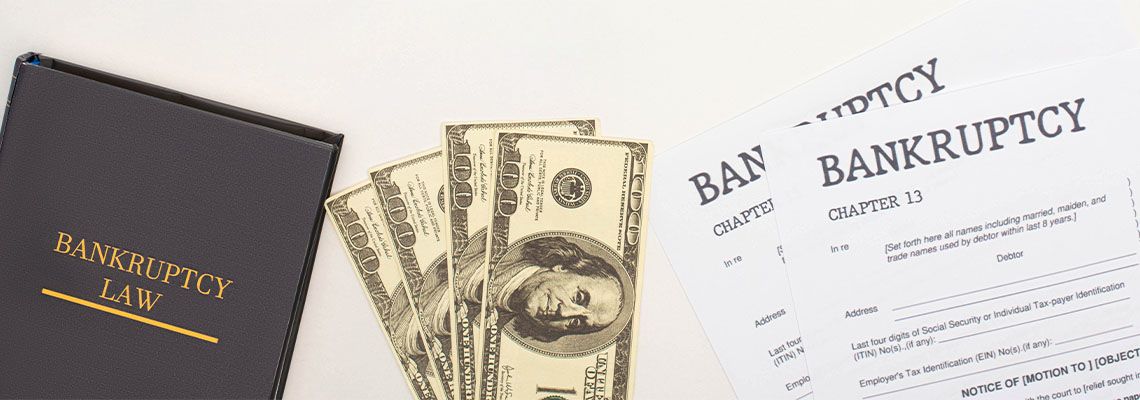
Options to Consider Before Declaring Bankruptcy
Bankruptcy can be a confusing and intimidating experience. It is important to carefully consider what steps to take when preparing to file for bankruptcy. If you do not take the correct steps, it could leave you in a situation that doesn’t fit your needs in the way that you would like.
At The Orantes Law Firm, we provide bankruptcy guidance so our clients can weigh their options before declaring bankruptcy. Our team has the practice, comprehensive skills, and resources to consider the pros and cons for you before deciding to file for bankruptcy. Our legal team at The Orantes Law Firm proudly serves clients in Los Angeles County, Orange County, Irvine, and the city of Los Angeles, California.
What Is Debt Consolidation?
People with debt issues generally deal with multiple debt sources. For instance, people deal with mortgages, credit cards, personal loans, and car leases, among others. When added, these payments may exceed an individual’s income. So, before declaring bankruptcy, debt consolidation may be a viable alternative.
Debt consolidation consists of taking on one loan that can cover all outstanding debt. While the debt does not go away, the individual is left with a single, lower monthly payment they can afford. Debt consolidation can help folks get out of debt without declaring bankruptcy.
Here are the pros of debt consolidation:
Lower monthly payments.
Longer payment terms.
Lower interest rates, particularly when compared to credit cards.
One payment instead of several payments throughout the month.
Easier to keep track of debt repayment.
Here are the cons of debt consolidation:
The debt repayment term becomes extended for several months or years.
The debt amount may be larger than the sum of the individual debts.
A solid credit score is required to qualify (generally above 600).
The individual may need to cancel credit cards or return leased vehicles.
The total sum of interest may be higher than the original debt.
On the whole, debt consolidation is a solid alternative to declaring bankruptcy. While the debt repayment period may become extended, it’s better than struggling with an endless loop of mounting interest.
What Is Debt Settlement?
Debt settlement consists of working with creditors to restructure debt to build a realistic repayment plan. For example, credit card issuers work with struggling clients to transform debt into a single principal amount. Then, the issuer structures a repayment schedule to settle the debt. However, this approach generally means the individual can no longer use the credit card.
Here are the pros of debt settlement:
The debt stops accruing interest.
The individual can negotiate a realistic payment amount.
A fixed repayment schedule is settled instead of an endless payment cycle.
There is certainty in the overall amount to be repaid.
Here are the cons of debt settlement:
Individuals may need to settle on an extended payment schedule.
A high-interest rate may be locked in to refinance the debt.
The individual may need to pay a refinancing fee.
The individual’s credit score may be negatively affected.
Overall, debt settlement works well when individuals negotiate realistic repayment terms. However, falling behind on these payments can seriously harm credit scores. So, it is best to ensure no late or missed payments.
What Is a Debt Management Plan?
A debt management plan involves working with a trusted financial advisor or debt relief attorney to develop a sensible debt repayment plan. For instance, folks struggling with high-interest credit card debt may be able to transfer their balance to a lower-interest card. Similarly, people dealing with mortgage issues could refinance to get a lower monthly payment.
Here are the pros of a debt management plan:
Credit history or reports are not affected.
Folks can take advantage of lenders’ special offers or promotions (i.e., home refinancing deals).
Payment terms are not extended.
Borrowers pay a similar or lower interest rate.
Folks can get out of debt within their means.
Here are the cons of a debt management plan:
Individuals may need to restructure the monthly budget by reducing expenses in other non-essential areas.
Some debt settlement may be needed.
Lender promotions are not always available.
Folks may still need to cancel credit cards or return leased vehicles.
No new debt should be taken on until the original debt has been cleared.
Please note that a debt management plan requires discipline and attention to detail. Nevertheless, sticking to it can become a great way to get out of mounting debt.
Discover Your Options Today
It is vital to get in touch with a bankruptcy attorney if you are struggling with debt. Declaring bankruptcy is something that you should not manage on your own, otherwise, you could be facing larger issues.
Don’t let debt get the best of you. Contact The Orantes Law Firm today if you’re ready to get out of debt. The firm proudly serves clients in Los Angeles County, Orange County, Irvine, and the city of Los Angeles, California.
